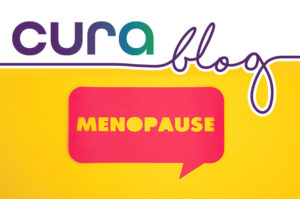World Menopause Awareness Month
Request a Callback
By clicking on submit I / We give consent for you to call me / us on the number provided to discuss my / our financial requirements.
Caring - Understanding - Reliable - Advice
Home » Guides & News » World Menopause Awareness Month

World Menopause Awareness Month
World Menopause Awareness Month is an annual campaign, organised in order to raise awareness for the menopause, a natural stage in a woman’s life. This is an opportunity for many different industries to work together to combat stigma and misinformation surrounding female health.
World Perimenopause Day takes place on 11th October 2021. Before reaching the menopause, most people will go through perimenopause without realising, with 9 in 10 people saying that they didn’t know that their symptoms were related to perimenopause. This usually starts around 2-10 years before a woman’s periods stop, typically whilst in the early to mid 40’s (Health & Her, 2019).
All people will experience this differently and have different symptoms. You may be fortunate enough to not have any symptoms, but the majority will have them, due to the fluctuating hormones. With many of these symptoms being associated with other things, even lifestyle choices, it comes as no surprise that they can be present without any actions being taken to control them or find out why, meaning people can often be struggling in silence with little direction.
One week after Perimenopause day is World Menopause Day, on 18th October 2021. Menopause is often seen as a taboo topic, but affects so many people within the UK and worldwide. Raising awareness and making people feel comfortable having these conversations is something that I think we should all strive for.
The average age for a person to go through the menopause is 45-55, with the average age in the UK being 5. There are also people who go through this early, even under the age of 30, and there can be things which cause this such as endometriosis, an oophorectomy or hysterectomy (NHS, 2019).
- Hot flushes
- Low mood
- Aching Joints
- Low energy
- Headaches
- Skin changes
- Period changes
- Weight gain
- Anxiety
There are more than 30 recognised symptoms, and most people will experience 9 of them. There are also knock-on effects of these symptoms, such as strained relationships due to stress, lack of intimate moments or the development of depression or anxiety.
If you’re having symptoms, it can usually be quite easy for a GP to confirm whether or not you’re menopausal, potentially taking a blood sample to measure your hormone levels. Many people choose not to undergo any treatment but if your symptoms interfere with your day-to-day life, then there are treatment options or lifestyle changes which have proven to work. These can be hormone replacement therapy (HRT), cognitive behavioural therapy (CBT), vaginal creams, lubricants or moisturisers and changing your diet, to be healthy and balanced with regular exercise.
It has also been known for people to be prescribed medication to alleviate the symptoms of menopause, such as antidepressants. It’s important to note that there is absolutely no shame in taking antidepressants, and in this instance it doesn’t necessarily mean you have any mental health conditions. This is a tried and tested method for supporting women that are finding this moment in their life to be a bit hard.
There can often be a stigma around seeking help to cope with the menopause, or taking medication for it, partly because people can be too embarrassed to bring it up or talk about it. In reality, the majority of women will go through the menopause at some point in their lives, why shy away from it?
Menopause in the workplace
Women of menopausal age in the UK are the fastest growing demographic in the workforce, and 1 in 4 women consider quitting their job or going part-time due to the effects of going through the menopause (Cover Magazine, 2021).
With the changing times, there are now more employers than ever before who have adjustments in place if you are going through the menopause, and you can also look to see which employers have signed the Menopause Workplace Pledge. Cura is a family run business, and ensuring each employee feels comfortable is really important, which is why we have also signed the Menopause Workplace Pledge.
Some employers may be making small steps in the right direction by producing leaflets explaining what you can maybe expect from the menopause, to others who offer support networks and even flexible working or time off work. You even have the company Timpson’s that have just announced that they will pay for HRT prescriptions for all their employees who need it.
If you’re fortunate enough to have access to insurance through your employer, you may also have access to additional support through the insurance. This can be extra support with companies like Red Arc Nurses, Square Health, Best Doctors and Health Claims Bureau, to name just a handful. Even if you’re just after a chat with an anonymous face, some insurers have made this possible for you.
Access to insurance
There are far too many people seeking insurance advice online or using price comparison sites because they’re too shy or embarrassed to talk about what they’re experiencing. This isn’t always a bad thing, but can lead to many people being under insured or not having insurance to cover their needs. It also means that people are sometimes choosing an insurer and product that doesn’t completely match their needs.
At Cura, we have a range of protection advisers and are able to accommodate your needs, meaning if you would rather speak to a female adviser or for example communicate mainly over email, this can be arranged.
Though going through the menopause doesn’t have a direct impact on the insurances available to you, the treatment you chose can sometimes alter what is on offer.
As a part of a life insurance, critical illness or income protection application, the insurer will often ask about any medication that you have been prescribed. If you have been prescribed antidepressants for menopause, insurers may wonder why and it can change the terms that you will see, particularly for income protection. You do not need to feel most insurers if you are prescribed HRT..
If you have had an oophorectomy or hysterectomy which has lead to an early menopause, the insurer will also have a few questions surrounding this, and may even ask for a medical report from your GP (only ever with your permission), this is common practice so please do not be concerned.
Hopefully, World Menopause Day can bring the nation together as a whole to debunk the stigma surrounding the menopause, so that more people feel comfortable and confident enough to have these conversations.
Resources
Cover Magazine (2021). Employment tribunals increasingly concerning menopause. [online] Available at: https://www.covermagazine.co.uk/news/4035721/employment-tribunals-increasingly-concerning-menopause [Accessed 18 Oct. 2021].
Health & Her. (2019). World Perimenopause Day 2021. [online] Available at: https://healthandher.com/hot-topics/world-perimenopause-day/ [Accessed 18 Oct. 2021].
NHS (2019). Overview – Menopause. [online] NHS. Available at: https://www.nhs.uk/conditions/menopause/ [Accessed 18 Oct. 2021].
Categories: Access to insurance
Client Reviews








Talk to a Friendly Adviser
Get a Quote
What We Offer?
- Experienced and knowledgeable advisers
- Specialist advice with no fees to pay
- Full assistance with all of your paperwork
- Put your policy into trust at no cost
- A dedicated insurance adviser for you
Our Recent Awards





































